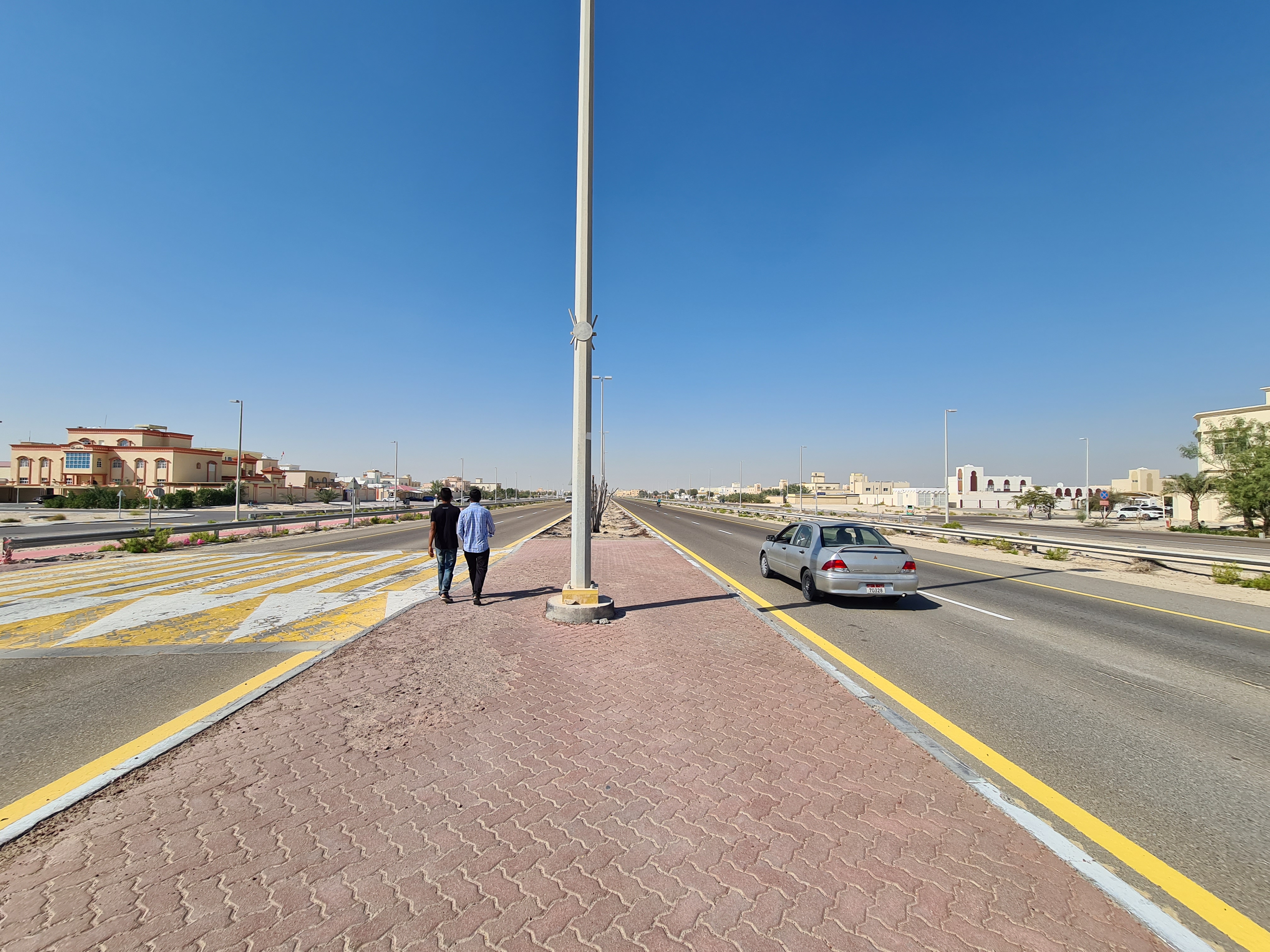Speakers: Dr Gustavo de Siqueira, Associate Professor of Urban Planning and Architectural Design, German University of Technology in Oman and Visiting Professor, institute of Urban Design, RWTH Aachen
Dr Florian Wiedman, Assistant Professor, Faculty of Engineering, University of Nottingham
Moderator: Professor Billie Giles-Corti, Professor Emeritus, RMIT University
Host: Dr Alexandra Gomes, Research Fellow, LSE Cities and LSE Middle East Centre Associate
REGISTER TO ATTEND

This hour-long research seminar will include two presentations from two experts on Gulf urbanism, Dr Gustavo de Siqueira and Dr Florian Wiedmann. It will explore the relationship between urban development, car dependence and climate change, through the lens of housing, citizenship, migration, and transport and introduce sustainable strategies for urban regeneration and public realm activation. Each topic will begin with a short opening statement which will be followed by a moderated discussion during which all attendees are invited to participate with questions and observations.
TOPIC 1 | Densification of residential districts in the Gulf cities as the key factor for the urban transition in the region.
Dr Gustavo de Siqueira
In Oman, rapid urbanization led to a high demand for developable land, a scarce resource in the region. Agricultural land - once predominant in the coastal areas vanished consistently after the urban agglomerations replaced the existing fishers' and farmers' villages. The process of land use changes contributed to a substantial decrease in the absorption capacity of the soil, intensifying the magnitude of flash floods predicted to increase through climate change. The long daily commutes provoked by expansive monofunctional low-density dwellings contribute to the high levels of fossil fuel consumption. Thus, emissions per capita of Gulf countries stand amongst the highest globally.
Besides the environmental impacts, these trends also decidedly affect population health in the region where NCDs are increasing exponentially. Noncommunicable diseases account for 74% of all deaths globally. Respiratory diseases caused by increased air pollution and cardiovascular diseases provoked by physical inactivity are among the main risk factors. They are associated with the characteristics of the built environment and tend to increase with climate change.
This talk explores evidence-based strategies to regenerate residential areas in Oman and the neighbouring countries. It showcases a systematic reinterpretation of housing typologies to boost densification and upgrading of neighbourhood environments to turn development patterns more adapted and healthier. Finally, it discusses alternative transportation and mobility means needed to support the urban transition.
TOPIC 2 | Five Forms of Everyday Urbanism in Gulf Cities and their Roles in Forming Public Realm
Dr Florian Wiedmann
This talk focuses on everyday urbanism in the case of Gulf cities, which have been emerging and transforming extensively during the last two decades. The rapid growth led to the phenomenon of one of the largest international migrations of expatriate workforce, who has had a significant impact on local housing markets. Today, five main housing markets can be distinguished resulting in five main typologies and creating five distinctive habitats segregated according to income. This research attempts to elucidate the resulting everyday spatial practices and experiences by following the theory of Henri Lefebvre and his idea of lived spaces and public realms. The methodological application of Space Syntax in combination with rhythm analyses can support better insights in why most neighbourhoods fail in activating their public realm, which is an essential factor for integrated development via mixing uses, densities, and modes of transportation to lower car dependency. This research is built on various studies since 2006 focusing on the case studies of Dubai, Manama, and Doha.
Biographies
Dr Gustavo de Siqueira holds a Ph.D. degree in Sustainable Design from the Resource Efficiency in Architecture and Planning program of the Hafencity University in Hamburg, Germany. He is Associate professor of the Urban Planning and Architectural Design faculty of the German University of Technology in Oman and Visiting Professor at the institute of Urban Design of the RWTH Aachen, Germany. His teaching activities focus on Urban Design strategies for Walkable Neighbourhoods and community engagement. Dr de Siqueira’s recent research activities include an investigation on the role of neighbourhood mosques to activate public spaces in Muscat employing a collaborative design approach (June 2020) and Demand-oriented and culture-sensitive housing typologies in Oman (concl. June 2021). Additionally, he is acting as a consultant for multiple government bodies in Oman such as the Ministry of Housing and Urban Planning and the Muscat Municipality
Dr Florian Wiedmann is an academic architect specialised in investigating housing and urbanism from an international and interdisciplinary perspective who has been working in research, consulting, and teaching since 2006. His research frameworks and methodologies follow an integrated approach and are rooted in space production theories set in juxtaposition to a contemporary understanding of sustainable urbanism. His involvement in interdisciplinary research projects and courses at eight universities in Germany, the UK, and the Middle East made it possible for him to gain in-depth experience in investigating the complex relationship between people and places on an international scale.
Professor Billie Giles-Corti is a Professor Emeritus at RMIT University. For over two decades, she and a multi-disciplinary research team have been studying the impact of the built environment on health and wellbeing. From 2017-2022, she led the Healthy Liveable Cities Lab in RMIT’s Centre for Urban Research; and between 2014-2020 led an NHMRC Centre of Research Excellence in Healthy Liveable Communities. She has been a Technical Advisor of the Victorian Office of the Government Architect’s Design Review Panel, a member of the Victorian Planning Authority’s Precinct Structure Plan Review Committee, and a member of Melbourne Water’s Liveability Panel. She is Fulbright Scholar, and an Honorary Fellow of both the Planning Institute of Australia and the Public Health Association. She has published over 400 articles, book chapters and reports, and by citations, has been ranked in the top 1% of researchers in her field globally.